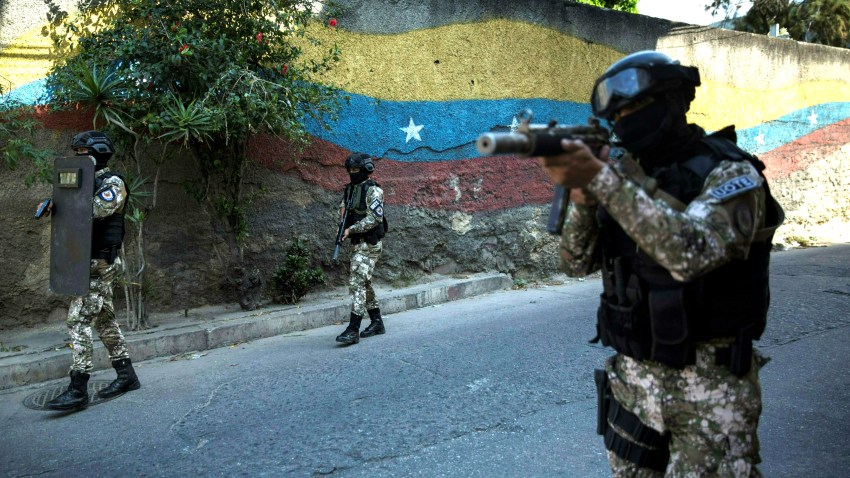There is no end in sight to the political and humanitarian crises that have overwhelmed Venezuela and spilled over into neighboring countries for most of the past decade. In fact, the protracted fight for control of the country has only meant additional suffering for its citizens, who are already living in the most dire conditions outside of a warzone in recent memory.
The most recent twist in the country’s ongoing tragic saga came last weekend, in the form of its long-anticipated presidential election. Though expectations for a free and fair election were low, the opposition agreed to participate in it after the Biden administration brokered a deal last year by which Washington relaxed U.S. sanctions on Venezuela’s oil sector in exchange for guarantees by the government of President Nicolas Maduro that would have at least improved the electoral conditions ahead of the ballot. Despite backsliding by the regime—including a ban on the opposition’s initial nominee, Maria Corina Machado—the eventual opposition candidate, Edmundo Gonzalez Urrutia, won an overwhelming victory, according to both exit polls and paper tallies from the country’s digital ballot machines collected by the opposition.
Nevertheless, Maduro declared himself the winner immediately after the polls closed, based on the results announced by the regime-controlled electoral commission. Despite calls from the opposition and governments around the region to release a detailed audit of the voting, Maduro has so far refused to do so. Now another round of international pressure and isolation seems certain, with several regional countries having already recalled their ambassadors or severed relations with Caracas. But whether it will affect Maduro’s calculations remains to be seen.
Even if the political stalemate were to be broken, there are no easy solutions for fixing the country’s economy, which was too dependent on oil and collapsed as global crude prices fell. U.S. sanctions and crumbling infrastructure due to mismanagement mean that oil production will not recover anytime soon. But over the years, Maduro has shown more interest in consolidating his grip on power than making needed structural changes. The result has been growing shortages of food and basic supplies, widespread power outages and alarming rates of malnutrition. The crisis has also decimated the country’s health care system, leaving Venezuela at the mercy of the coronavirus pandemic, which further exacerbated all of its challenges.
In the past eight years, the country’s internal crisis has spilled out across South America as millions of Venezuelans have now fled the country in search of food and jobs. The exodus has fueled xenophobia and even violence against Venezuelans seeking refuge in neighboring countries. It has also stretched the capacity of regional governments and humanitarian organizations as they attempt to provide aid to Venezuelans fanned out across the region. Although the coronavirus pandemic temporarily halted and even reversed the flow of refugees, it has since begun again, at a time when government resources around the region have been put under strain, first by the health crisis and now by the economic fallout from the war in Ukraine. As a result, thousands of Venezuelans every month are now heading north through the dangerous Darien Gap, under the mistaken belief they will be able to easily enter the U.S. and claim asylum.
WPR has covered Venezuela in detail and continues to examine key questions about what will happen next. How will the opposition respond to Maduro’s attempt to steal yet another election? Will international pressure succeed in convincing Maduro to relinquish power? Will the election crisis trigger another exodus of Venezuelan refugees? Below are some of the highlights of WPR’s coverage.
Editor’s note: This article was originally published in July 2019 and is regularly updated.

